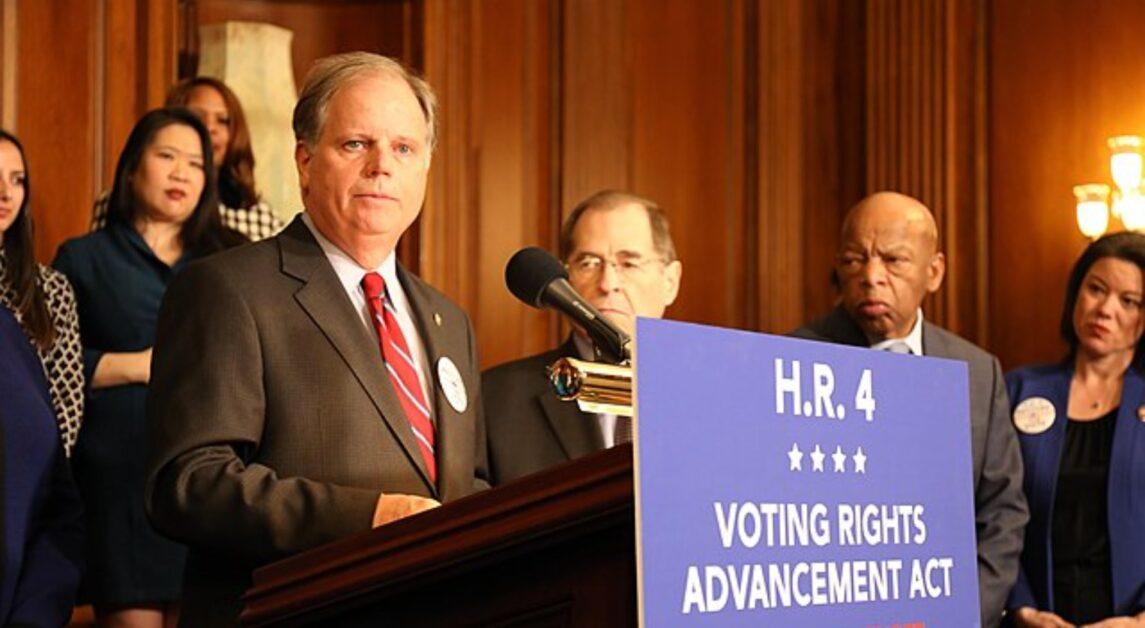“I’m taking a leave of absence from everything except my Boston College School of Law gig and will become an adviser to the president regarding the … Supreme Court nomination that’s coming up, so I’m very excited about that,” Jones told The Heights on Eagle Eye.
After defeating Republican Roy Moore—a former judge accused of sexually assaulting minors—in a 2017 special election, Jones became the first democrat to hold a Senate seat in Alabama since 1997. Jones is also a former U.S. Attorney known for prosecuting two members of the Ku Klux Klan for the 1963 Birmingham church bombing that killed four Black girls in the late ’90s.
Ken Kersch, a political science professor at BC, said Jones’ political experience and Alabama upbringing could have been factors in his appointment to the role of “sherpa”—formally titled the nomination advisor for legislative affairs.
“It seems to me obvious that he’s someone, first of all, who has a lot of political skills and has served in the Senate with many of the senators on both sides of the aisle, and he is respected and well liked,” Kersch said.
The advisor role serves to establish connections between the nominee and senators who will ultimately vote to confirm them, according to Kersch.
“So the guide, especially in the case of Jones, is a political job,” he said. “Its job is to introduce the candidate to individual senators, in significant part, [to] find common ground.”
R. Shep Melnick, a political science professor at BC, said the advisor role may also have to strategize about media coverage and prepare the nominee for congressional hearings.
“They’ll have a series of mock hearings, in which some of the people on the team will play Republican senators, shooting questions at them and helping them try to figure out how to respond to these questions in ways that will be beneficial,” Melnick said. “So it’s pretty intense training that these nominees have to go through.”
Melnick said there are various unknowns that could harm the nominee’s chances, ranging from their personal background to Republican strategy.
“The sherpa—Doug Jones—is not going to know the strategy of the Republicans, whether they’re going to fight tooth and nail or whether they like to basically go through pro forma opposition,” he said. “They’re not going to know what kind of issues Fox News is going to raise and that they’ll have to respond to.”
The challenge for Jones and the White House is the increasingly partisan confirmation process, Kersch said.
“There’s a lot of hardball tactics,” he said. “The votes are increasingly lying along on a partisan basis, and so many people have suggested that if [the confirmation process is] not broken, [it’s] not in one of its more collaborative and cooperative stages.”
Jones said that as the confirmation process has become more polarized, so has the Supreme Court. He compared the current confirmation process to a political campaign.
“You will see millions of dollars being spent on political ads in states where they think that a senator can be swayed one way or another, and that gives the appearance of politics in a big, big way,” Jones said. “So … I worry about the perception of the court. I believe in an independent judiciary, and I worry that has not been the case as much over the last few years, and I can understand why the public sees that.”
The fact that Biden’s nominee won’t change the balance of the court might mitigate the intensity of partisanship in the confirmation process, according to Melnick.
“Basically, you have a liberal retiring and a liberal replacing him,” he said. “So it’s possible the Republicans would not put up a huge fight. It’s even possible, although I think probably unlikely, that the nominee … will get one or two Republican votes.”
Biden has promised to pick a Black woman for his Supreme Court nominee, which has sparked backlash from some Republicans. Kersh said this choice is the modern Democratic Party idea that the Supreme Court should be a representative institution.
“This is going to be a bright, highly qualified candidate for the court, every bit as qualified as someone like Amy Coney Barrett or Neil Gorsuch,” Kersch said. “So I don’t think at the end, it will matter to the confirmation vote.”
Though Jones said he could not comment on Biden’s promise, he pointed to his political and electoral history as an indicator of his reaction.
“I think if you look at my history in civil rights and … really significant vote I got among African American women [that] helped push me over the top [in my election in 2017], you can probably figure what my reaction is going to be,” Jones said.
Featured Image from Wikimedia Commons



















